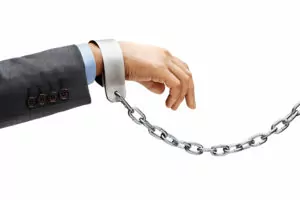 After the Enron scandal, Congress aimed to pass a law prohibiting the destruction of evidence and preventing similar scams from occurring. The result was Sarbanes-Oxley (SOX), an unwieldy law that prosecutors have increasingly been applying to a very broad range of different activities.
After the Enron scandal, Congress aimed to pass a law prohibiting the destruction of evidence and preventing similar scams from occurring. The result was Sarbanes-Oxley (SOX), an unwieldy law that prosecutors have increasingly been applying to a very broad range of different activities.
The problem is, Sarbanes-Oxley makes it a criminal act to cover up or alter “any record, document, or tangible object” with the intention of impeding or obstructing an investigation related to any matter that is under federal jurisdiction. It doesn’t matter what the evidence is that was allegedly destroyed, and the prosecutor does not have to prove that the defendant who is being charged actually was aware an investigation was taking place. Prosecutors have thus used Sarbanes-Oxley to go after anyone who may have “obstructed justice,” while defining obstruction very broadly.
Just recently, this led to a case, Yates v. United States, where the Supreme Court had to rule that a fisherman who threw an undersized fish overboard couldn’t be sentenced to 20 years in prison for a Sarbanes-Oxley violation. Now, The Nation has a reported on other recent cases where Sarbanes-Oxley was used to impose significant prison sentences for things that should not rationally warrant decades in prison: like clearing your Internet browser history.
Clearing Your Browser History Could be a SOX Violation
Clearing your Internet browser history is a standard thing for many computer users. For 24-year-old Khairullozhon Matanov, however, it was an action that led to the threat of two decades imprisonment.
Matanov was a friend of Tamerlan and Dhzokhar Tsarnaev, two brothers who were accused of bombing the Boston Marathon. Matanov ate dinner with the brothers the same night of the bombing. Four days later, he saw that his friends were listed on the FBI website and that CNN was saying they were responsible for the bombing. Matanov went to the police and said he had eaten dinner with the brothers. Later, after speaking with the police, Matanov went home and cleared his Internet browser history.
Matanov was subsequently accused of lying about when he’d seen the Tsarnaev’s photographs, lying about where Tamerlan lived, and lying about when he had last prayed with Tamerlan. Authorities did not allege that Matanov knew about the bombings beforehand.
The FBI, suspecting Matanov had been dishonest, placed him under surveillance using a drone-like plane and then subsequently charged him with four counts of obstruction of justice in May of 2014. Three of the counts were for making false statements based on his alleged lies, but the fourth charge was for destroying records under Sarbanes-Oxley. In other words, for clearing his browser history, Matanov was facing 20 years in prison!
Matanov and the fisherman whose case ended up in the Supreme Court was among an increasingly large number of defendants threatened with this serious charge. SOX has also been used against a police officer who allegedly falsified a report covering up brutality; against a woman who allegedly destroyed her boyfriend’s child pornography collection, and against a University of Tennessee student who allegedly deleted digital records showing he’d improperly obtained access to Sarah Palin’s email account. While the Yates case narrowed the scope of SOX somewhat, the case did not address how broadly Sarbanes-Oxley can be used in the digital age.
The broad application of Sarbanes-Oxley to digital data is part of a wider trend in which the federal government seems to feel entitled to people’s digital data. The problem is, this creates a ridiculous burden on people because the standard is essentially that a person should never, ever delete anything on his personal computer that could some day be of interest to the police in an investigation. This is a major violation of expectations of privacy and the Constitutional rights that have been a fundamental part of American jurisprudence.
If you are accused of a violation of Sarbanes-Oxley for deleting your browser history or for any alleged destruction of digital evidence, it’s important to talk to a defense lawyer who knows the laws inside and out and who can defend you against this federal overreach.